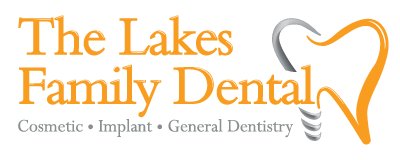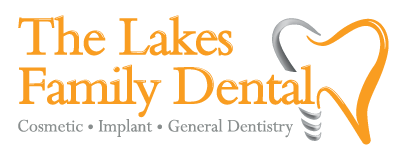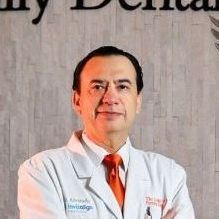What is sleep apnea? Sleep apnea is a serious sleep disorder that involves the starting and stopping of breathing during sleep. This results in poor rest, low oxygen levels, and long-term health issues. Luckily, it can be managed through lifestyle changes, CPAP therapy, or dental treatments.
According to the National Heart, Lung, and Blood Institute (NHLBI), around 50 to 70 million Americans have sleep disorders. Also, 1 in 3 adults doesn't regularly get the recommended amount of uninterrupted sleep to stay healthy. So if you feel like you're not recharged after a "good" night's sleep, you may be part of these statistics.
For example, many Americans have sleep apnea. What is sleep apnea, and what are its warning signs, causes, and solutions?
What Is Sleep Apnea?
Sleep apnea is a common but serious sleep disorder. Essentially, your breathing stops and starts repeatedly as you sleep.
What's scary is that these lapses in breathing can last anywhere from a few seconds to over a minute. When this keeps happening throughout the night, it deprives your body and brain of oxygen. As a result, you won't have restful sleep, and it'll impact your overall health.
There are three main types of sleep apnea:
- Obstructive sleep apnea (OSA): Airway is physically blocked, usually by relaxed throat muscles (most common type)
- Central sleep apnea (CSA): Brain fails to send proper signals to the muscles that control breathing
- Complex or mixed sleep apnea: Combination of OSA and CSA
What Exactly Happens in Sleep Apnea?
When you're having a sleep apnea episode, your airway is either partially or completely blocked. This makes it difficult for air to reach your lungs, and your oxygen levels drop.
To ensure that you can still breathe, the brain briefly wakes you up to reopen the airway. Often, people don't even remember waking up since it happens in an instant.
Basically, you'll go through a cycle of:
- Obstruction
- Awakening
- Resuming breathing
Not only do your blood oxygen levels drop to unhealthy levels, but you never reach deep, restorative sleep stages. This means that your heart and brain are under chronic stress.
What Are the Warning Signs of Sleep Apnea?
There are both nighttime and daytime symptoms of sleep apnea. Despite this, many people are unaware they have sleep apnea until a bed partner notices these symptoms and tells them.
Nighttime symptoms include:
- Loud, chronic snoring
- Gasping or choking during sleep
- Pauses in breathing
- Restless or fragmented sleep
- Night sweats
- Waking up with a dry mouth or sore throat
Daytime symptoms are:
- Excessive daytime sleepiness
- Morning headaches
- Trouble concentrating or memory lapses
- Irritability or mood swings
- Decreased productivity or alertness
As you can see, these warning signs overlap with symptoms for other conditions, so it's important for you to get a sleep evaluation to see if you really do have sleep apnea.
What Is the Main Cause of Sleep Apnea?
The main cause of OSA is the relaxation of your throat and tongue muscles. On the other hand, the main cause of CSA is the brain failing to properly control breathing during sleep. This is often linked to neurological or heart conditions.
Although that's not all. Other factors that can contribute to sleep apnea are:
- Excess weight
- Anatomical structure (e.g., a thick neck, large tonsils, recessed jaw)
- Aging
- Nasal congestion (e.g., chronic congestion or a deviated septum)
- Alcohol or sedatives
- Genetics
How Do You Fix Sleep Apnea?
Fortunately, you can receive sleep apnea treatment. The goal is to address the underlying cause and to ensure the airway remains open while you sleep.
First, you can make lifestyle changes, which are excellent for your overall health as well. You can try:
- Losing weight
- Exercising regularly
- Avoiding alcohol and smoking
- Sleeping on your side (positional therapy)
Some people use a continuous positive airway pressure (CPAP) machine. This machine gives you steady air pressure through a mask to keep the airway open.
In severe cases, you may need surgery to remove or reposition obstructive tissue, such as:
- Uvulopalatopharyngoplasty (UPPP)
- Nasal surgery
- Jaw repositioning
How Can a Dentist Help With Sleep Apnea?
Even though sleep apnea is a sleep disorder, there are dental solutions that are helpful in managing it. For instance, your dentist may see warning signs that suggest airway issues and assist with early detection, like:
- Worn enamel from grinding
- Scalloped tongues
- Enlarged tissues
From there, they can personalize treatment to suit your lifestyle, especially if you don't want to start off with a CPAP machine or can't tolerate one. One alternative is oral appliance therapy (OAT), where you get a custom-made dental device that repositions your lower jaw and tongue slightly forward to prevent the airway from collapsing during sleep.
Or there's Solea Sleep, which is a 5-minute laser procedure that helps with snoring. It's non-surgical, and it gives you immediate results.
Can Sleep Apnea Go Away?
Yes, sleep apnea can go away in some cases, especially if you've made lifestyle changes. You can experience significantly decreased symptoms or resolution in mild cases through:
- Weight loss
- Reduced alcohol consumption
- Improved fitness
However, most people need ongoing treatment to effectively manage their sleep apnea. It's important to have regular follow-ups with your doctor to ensure long-term success.
What Happens if Sleep Apnea Is Left Untreated?
It goes without saying that if you leave your sleep apnea untreated, you'll experience fatigue and a poorer quality of life since you'll keep having poor-quality sleep. But it goes further than that.
When you experience chronic oxygen deprivation and bad sleep, it can:
- Strain your cardiovascular system
- Increase blood pressure
- Raise the risk of heart attack, stroke, diabetes, and depression
Not to mention, it can impair your concentration, which can then increase your risk of accidents.
Frequently Asked Questions (FAQs)
Can Sleep Apnea Occur in Children?
Yes, sleep apnea can occur in children. Causes include:
- Enlarged tonsils
- Enlarged adenoids
- Obesity
Symptoms to watch out for include restless sleep, mouth breathing, bedwetting, or behavioral issues.
Is Snoring Always a Sign of Sleep Apnea?
Not always, but it's definitely one of the most common warning signs. Occasional snoring is probably harmless, but if you have frequent and loud snoring that's followed by pauses in breathing, then sleep apnea is a likely culprit.
Can Sleep Apnea Cause Weight Gain?
Yes, it can. Poor sleep can affect your metabolism and hormone balance (leptin and ghrelin), which can then lead to an increased appetite. You may also be too tired to exercise, so everything together may lead to weight gain.
This can end up being a vicious cycle, as additional weight can worsen sleep apnea.
Does Sleep Apnea Get Worse With Age?
Yes, due to the fact that as we age, muscle tone decreases and fat distribution changes. These two factors combined can worsen airway obstruction, as the airway becomes more prone to collapse while you're sleeping.
Can Sleep Apnea Affect Mental Health?
Yes, it definitely can. When you're chronically tired and deprived of oxygen, this can lead to not only cognitive decline, but also anxiety and depression. You'll also feel irritated, have memory issues, and find it difficult to concentrate, and these things can impact:
- Work performance
- Relationships
- Overall quality of life
How Is Sleep Apnea Diagnosed?
Sleep apnea is usually diagnosed through a sleep study (polysomnography), which you can do at home or in a lab. While you're sleeping, the sensors will monitor your:
- Breathing patterns
- Oxygen levels
- Brain waves
- Heart rate
- Body movements
From the data, doctors can determine whether you have sleep apnea, and if you do, which type and the severity as well.
Can Sleep Apnea Be Inherited?
Yes, genetics can play a role. If you have a family history of sleep apnea, then it's likely that you've inherited physical traits that increase your risk, such as a narrow throat or a large tongue. You may also have a genetic predisposition to things like obesity or a particular nasal structure.
Can You Have Sleep Apnea Without Snoring?
Yes, you can. Snoring is common in OSA, but not everyone with sleep apnea snores.
For example, those with CSA don't tend to snore. So it's important to watch out for other symptoms besides snoring.
Is It Safe to Use an Oral Appliance Without a Doctor's Supervision?
No, you should always use oral appliances that are prescribed, fitted, and adjusted by a qualified dentist. Over-the-counter devices may be cheaper, but they can have bad effects, such as jaw discomfort or bite misalignment.
See a Dentist if You Think You Have Sleep Apnea
Now you know the answer to the question, "What is sleep apnea?" Plus, you know what the warning signs are, how to get diagnosed, and what the possible treatment options are.
So if you suspect that you have this sleep disorder, don't hesitate to get it checked out. By catching it ASAP, you can improve your quality of life and prevent future health issues from happening.
If you have sleep apnea and would like to explore dental sleep solutions, then
schedule a consultation with us today. Dr. Alvarado at The Lakes Family Dental has over two decades of experience, and the practice has won multiple ethics awards.



